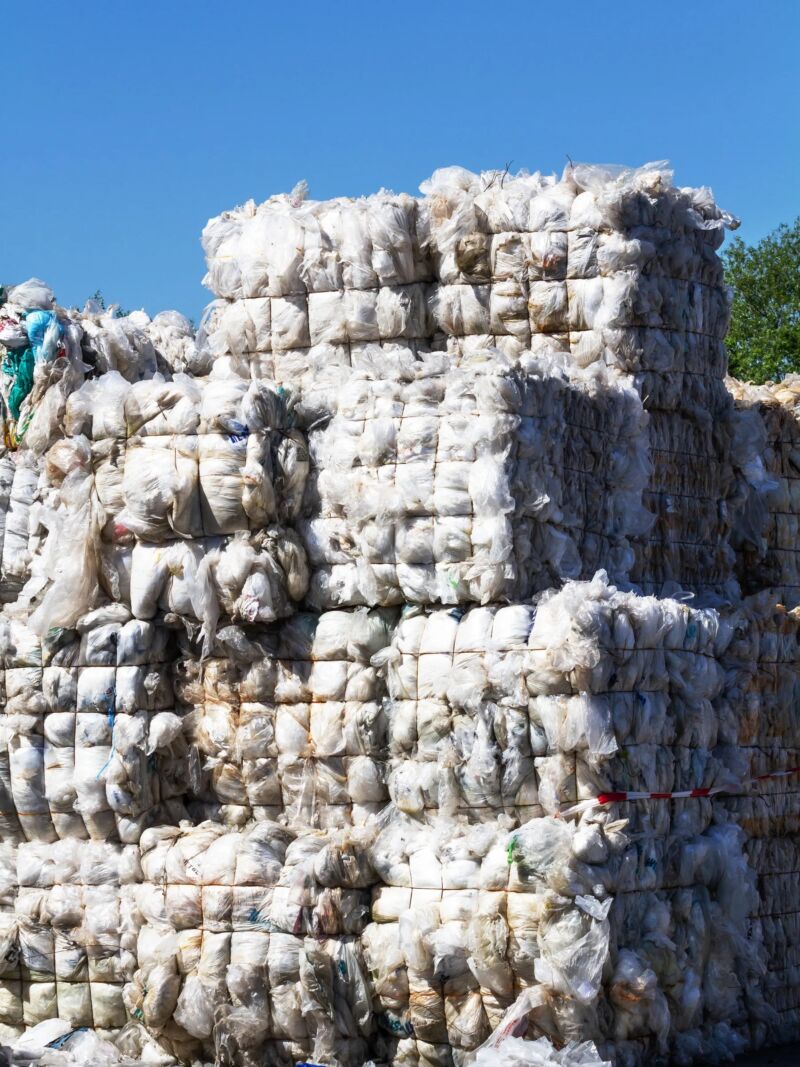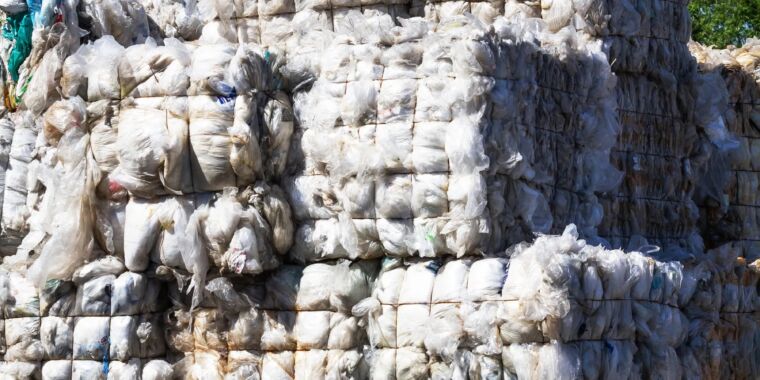
Getty Images
The plastics industry has long hyped recycling, even though it is well aware that it has been a failure. Worldwide, only 9 percent of plastic waste is actually recycled. In the United States, the rate is now 5 percent. Most of the plastic used is landfilled, incinerated or ends up in the environment.
Now, an alarming new study has shown that even when plastic reaches a recycling center, it can still shatter into smaller pieces that pollute the air and water. This pilot study focused on a single new facility where plastics are sorted, shredded and melted down into pellets. The plastic is washed several times along the way, causing microplastic particles – fragments smaller than 5 millimeters – to end up in the factory’s waste water.

Because there were multiple washes, the researchers were able to sample the water at four different points along the production line. (They are not disclosing the identity of the facility operator who worked on their project.) This plant was actually installing filters that could filter particles larger than 50 microns (a micron is one millionth of a meter). hold, so the team was able to calculate microplastic concentrations in raw versus filtered discharge water – effectively a before-and-after snapshot of how effective filtration is.
Their number of microplastics was astronomical. Even with filtration, they calculated that the total discharge from the various washes could produce up to 75 billion particles per cubic meter of wastewater. Depending on the recycling facility, that liquid would eventually end up in city water systems or the environment. In other words, recyclers trying to solve the plastic crisis may in fact be inadvertently exacerbating the plastic crisis microplastics crisis, covering every corner of the environment with synthetic particles.
“It almost seems a little backwards that we recycle plastic to protect the environment, and then end up compounding another and potentially more damaging problem,” said plastics scientist Erina Brown, who led the research at the University of Strathclyde.
“It raises some very serious concerns,” agrees Judith Enck, president of Beyond Plastics and former U.S. Environmental Protection Agency regional administrator, who was not involved with the paper. “And I also think this indicates that plastics are fundamentally unsustainable.”

